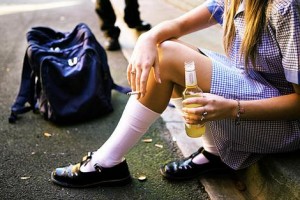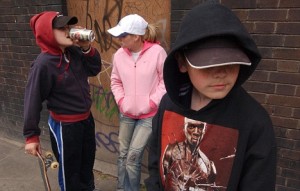“The Hangover” movie series has reigned supreme the last couple years as the ultimate going out, getting wasted and can’t remember what happened movies. The story and plot lines in these movies are not unique in themeselves and have been rehashed over and over again.
A few years ago another hangover movie – Dude, Where’s My Car was another hangover cult classic.
‘Dude, Where’s My car’ premiered in 2000 and was an instant classic for teenagers everywhere who were into the party scene. Probably similar to the same older generation that now enjoys the Hangover movies. The entire plot of dude where’s my car is going to seem very familiar to the hangover movies too that are so popular today.
“Two potheads wake up from a night of partying and can’t remember where they parked their car.” Just like in The Hangover when a group of guys awaken from a hard night of partying and can’t remember what happened.
If you assumed that the rest of this movie plot includes antics and interesting characters on the journey to finding their car again – then you would be right! The main characters are two “potheads” (played by Ashton Kutcher and Seann William Scott) whom are trying to find their car. This hangover movie begins with a…wait for it… HANGOVER after having a wild party the night before. Ashton and Sean wake up to find the house trashed and people sleeping on the lawn. The unfortunate thing is that they are not in their house they are in their girlfriend’s house which if I may add happens to be hot twins.
Hard night of partying. Check.
Can’t remember what happened. Check.
Hot girls. Check.
Do you see the pattern here?
This movie includes dogs getting stoned, a sexy scene including Kristy Swanson who plays “Christie Boner” and even aliens.
Ashton who plays Jesse and Sean who plays Chester pretty much are idiots and all they know is Jesse’s car is gone and they encounter a transsexual stripper who wants his/her suitcase of stolen money, a group of alien-seeking nerds and an angry street gang. Their girlfriends Wilma and Wanda are upset (for lack of a curse word) that they trashed their house. Mind you the whole time they must find a “continuum transfuctioner” (a mystical device that could either save or destroy the world) while trying to not be duped by a group of jumpsuit-wearing, sexy-as-hell, aliens posing as humans want it.
Sound ridiculous enough? Well it gets more ridiculous.
This movie glorifies smoking pot and getting wasted. In fact I can remember watching this movie as teenager and thinking how badass it all was and how hot Ashton Kutcher was. Truth is eventually you grow up and you realize life is not in the slightest bit like the ridiculous comedic hangover movies they shove in our faces. While this movie is certainly hilarious it’s definitely not productive or filled with tons of brain enhancing or memory boosting scenes.
This hangover movies is slapstick stupid comedy at it its best.
Don’t drink and drive my friends!






